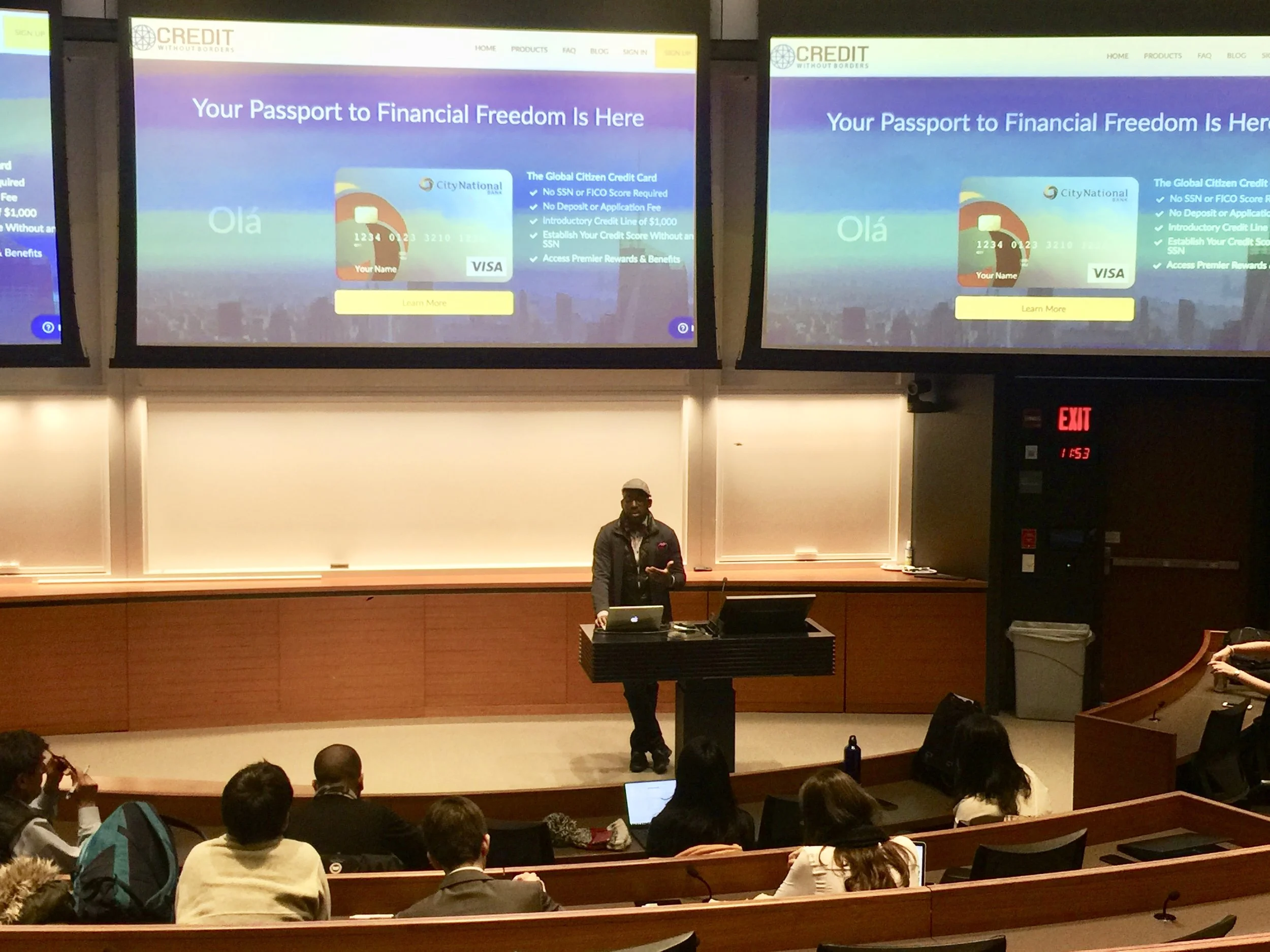CREDIT WITHOUT BORDERS, KOBINA ANSAH: The Global Swipe
New to the United States? Welcome! You will probably encounter your first roadblock towards trying to live ‘the American dream’ when it comes time to sign up with a cellular provider, rent an apartment or apply for a credit card. All of these procedures require a social security number, something international students typically don’t have in their early years. Founder of Credit Without Borders, Kobina Ansah caters to this underserved market by providing credit scores and cards without demanding an SSN. While some would call him a life saver, we like to say he’s part of the RADICHE family- spreading financial love one credit at a time.
CEO and founder of Credit Without Borders, Kobina Ansah was born in Canada to a Ghanaian family. Fun fact: his name means a male child born on Tuesday. “It wasn’t until I spent a year in Ghana during 3rd grade that I realized the opportunity I had by living in the United States. I focused all of my attention towards education and graduated from Cornell’s hospitality school as I loved the idea of working directly with people.”
The Aha-Moment
“After working as a Real-Estate Analyst within the consulting sector, I decided that I wanted to start something of my own. In 2012, I got into Wharton Business School and my vision was to start a business, but I needed a framework. Working in hospitality, my network was limited. I wanted to expand and create something that deals with finance, engages with consumers and integrates my passion for culture.”
Kobina’s real aha-moment came while he was at Wharton and chatting with a friend, who mentioned her challenges in trying to rent an apartment as an international student (for those who don’t know, you have to put down a large security deposit). “I initially thought I would cater apartment rentals to international citizens, but quickly pivoted due to its scalability and transitioned towards credit cards.”
Unlike other categories such a fashion or CPG, with a financial product, you can’t take pre-orders since it is a highly regulated space. Kobina shares his learning with us:
It took two years to put everything together.
There is no global credit score system, so people aren’t able to transfer their credit scores when they move countries.
Find a lawyer that is specific to your industry so that you can build a framework and tackle industry-specific challenges. The more niche and specific the lawyer's practice, the better.
“Our biggest challenge was to find a bank that was willing to partner with us. We had literally spoken to 50+ banks about this opportunity as well as won the BBVA Open Talent 2015 fin-tech competition.”
Kobina was finally able to find a regional bank that was willing to take a chance on him. Today, he is serving students in over 30 schools across the U.S. and is now positioning the company for a nationwide program launching this fall. Since this is going to be the first credit card for most international citizens, it is important that they don’t fall into debt and reduce their credit risk. Therefore, Credit Without Borders provides a summary of your expenditure to showcase which categories you spend the most in as well as spending trends. “We are taking a lot of time educating our customers on how to use credit cards appropriately and help them grow. Our idea is: if we give you a $500 credit line today, we want to get you to $3,000 line tomorrow.”
The Advice
Despite Credit Without Borders, Kobina has launched multiple companies in his past. One of them was similar to Airbnb, but before it’s time. As a result, Kobina has learned a thing or two about what makes a B2C company thrive:
Make sure the economics makes sense.
Make sure the market size is large enough.
Make sure you build out the right team via direct referrals versus online applications.
Interested in working for Credit Without Borders? They’re going to be hiring very soon. Contact us and we’ll put you in touch.
Photo courtesy of Credit Without Borders.



